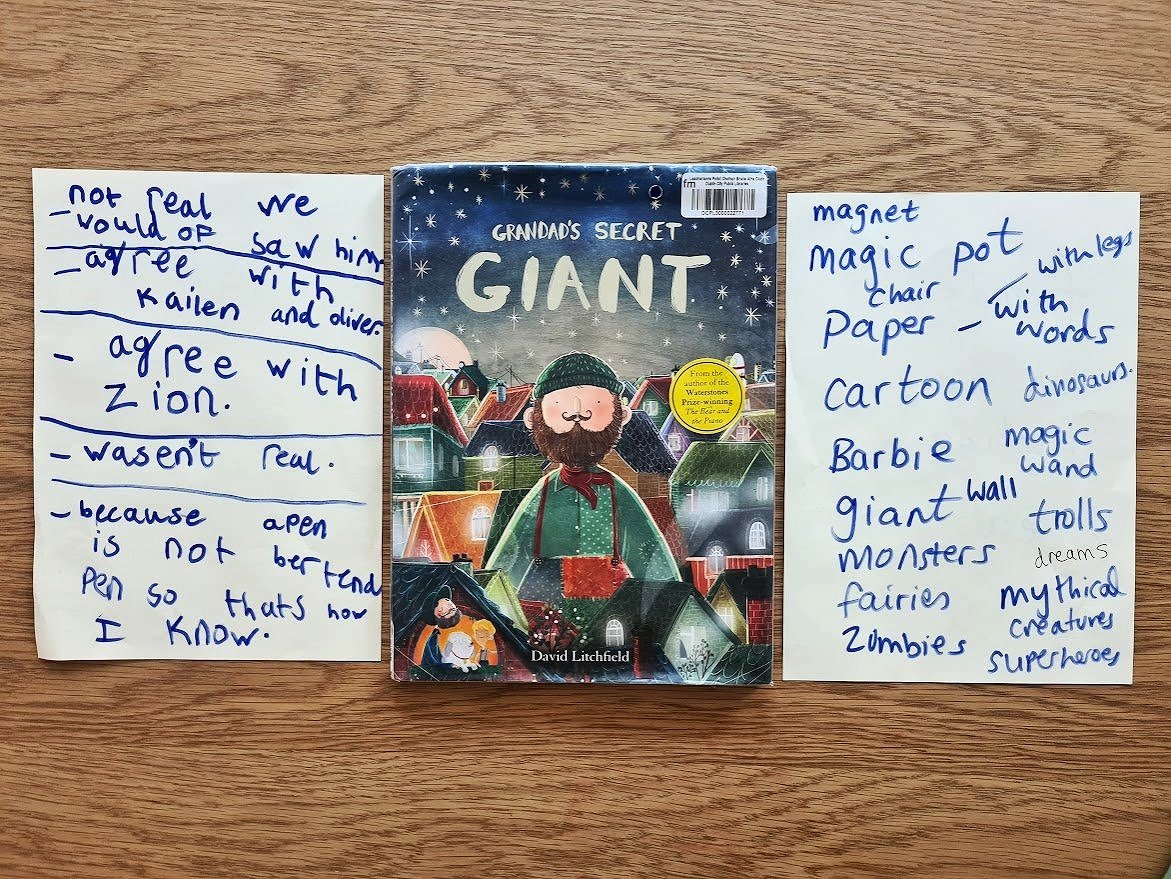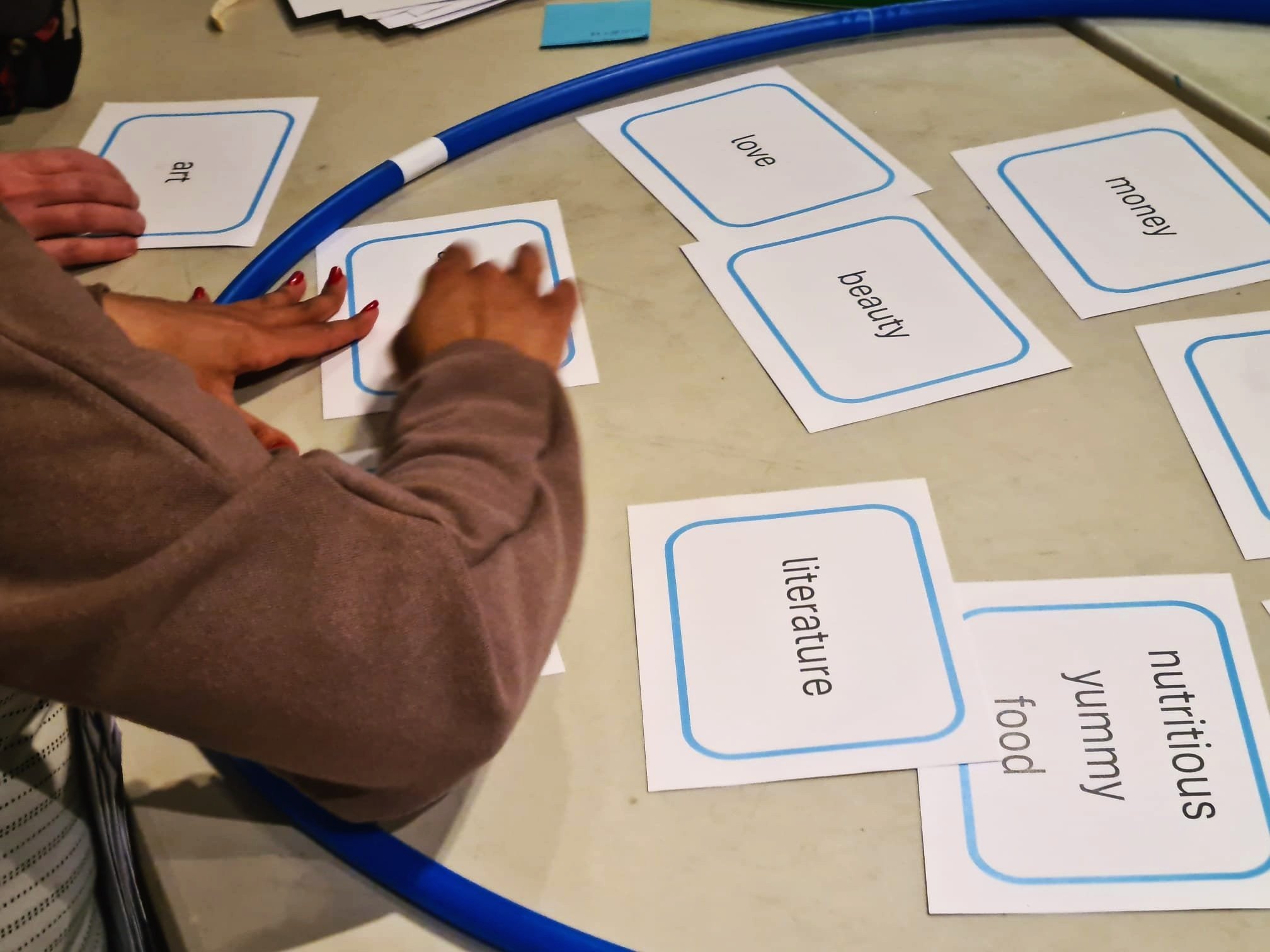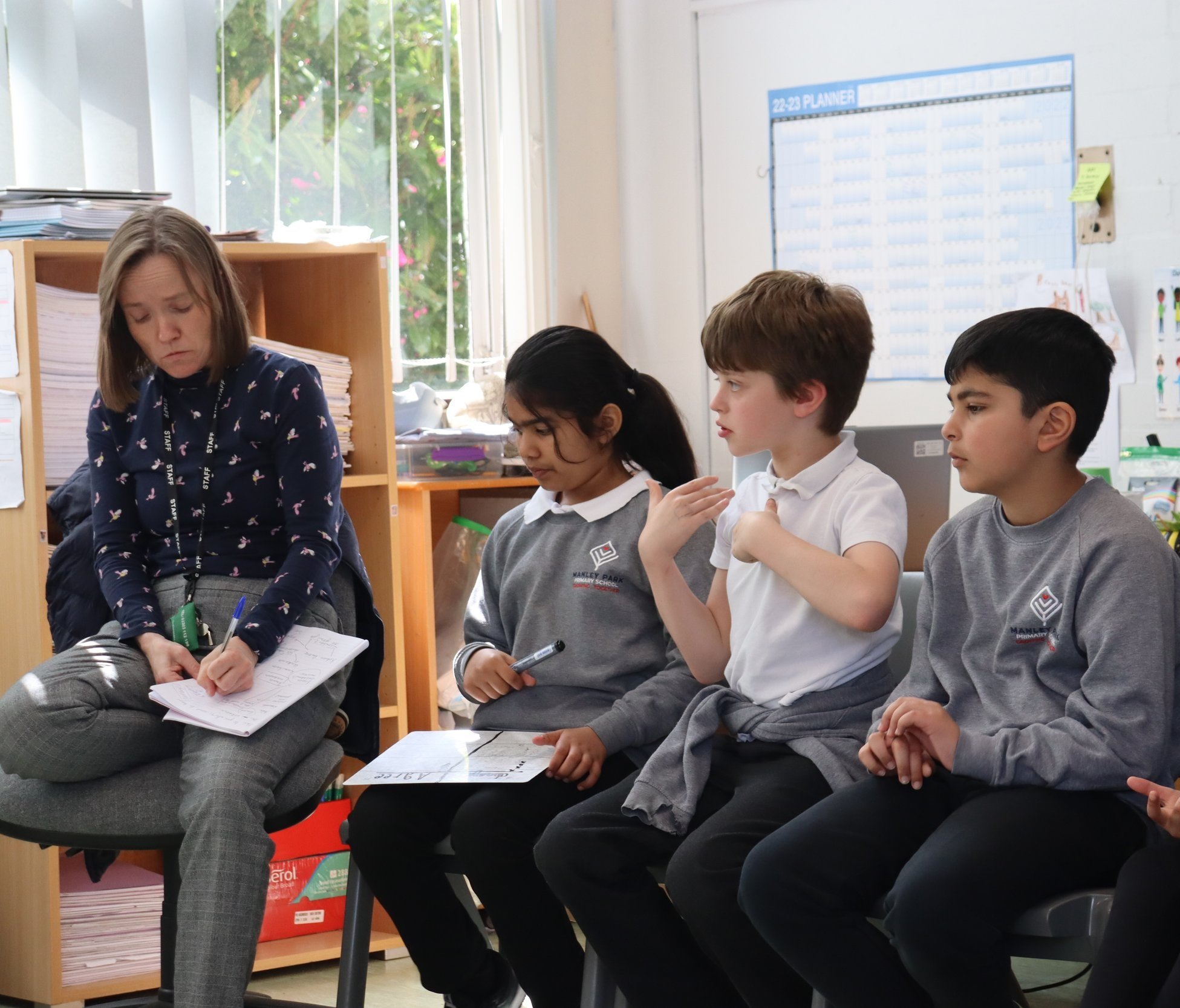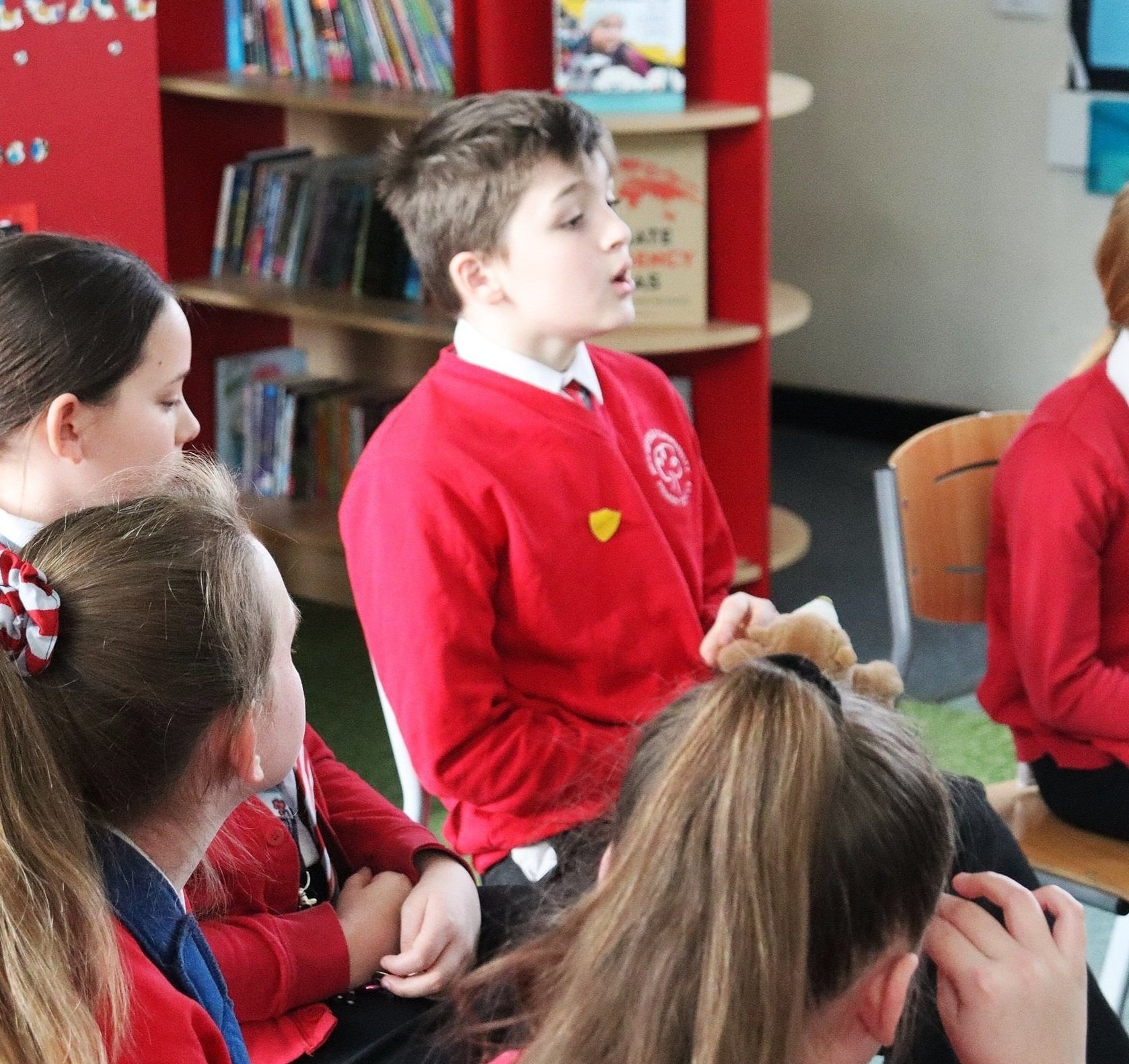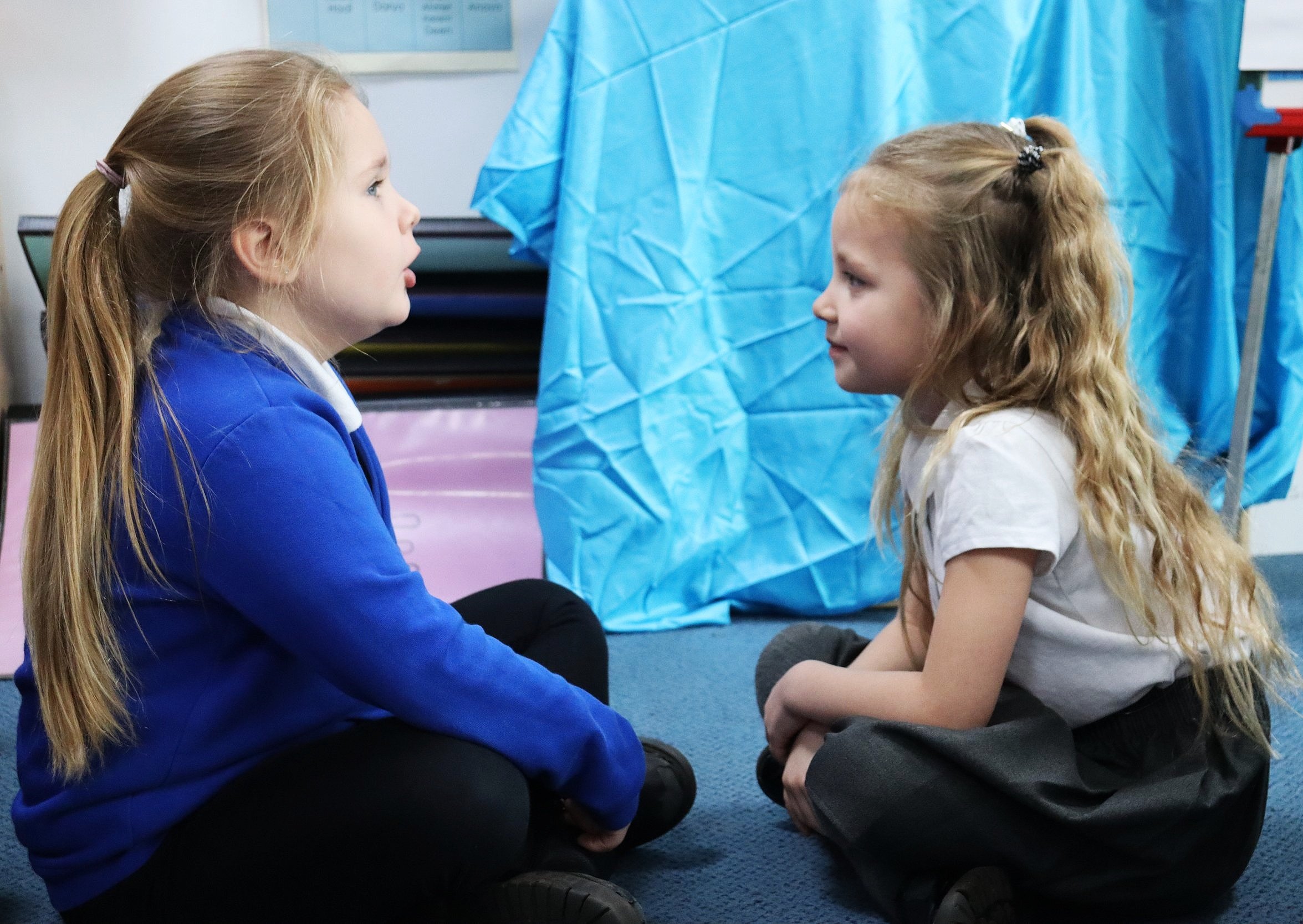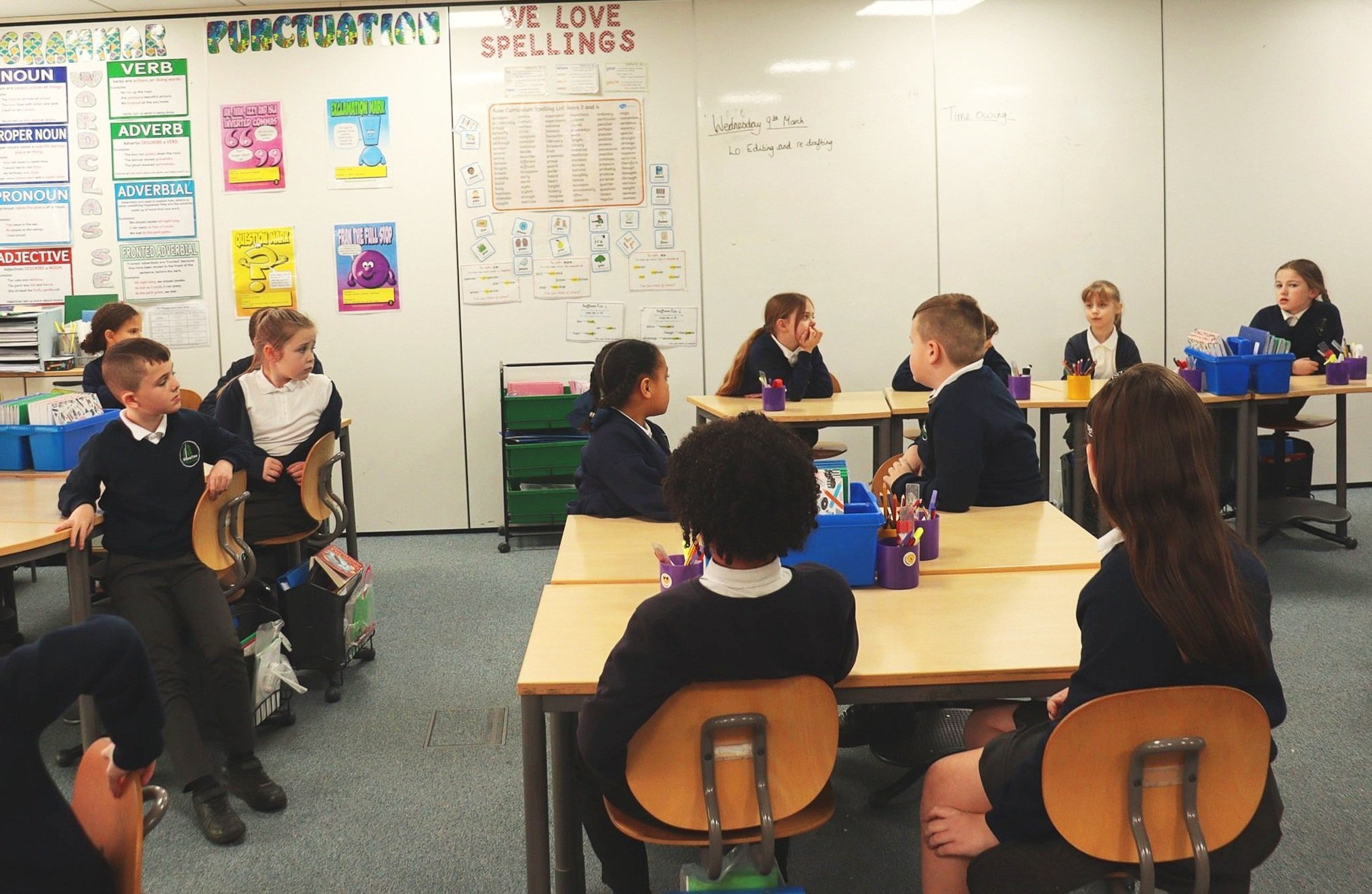Teachers often say they aren’t sure how to fit Philosophy for Children into a busy curriculum.
Remember though, that P4C can enhance the teaching of every subject. Here are some pupil and teacher quotes about the impact of using P4C in Literacy:
Doing P4C helps me organise my written ideas into a logical order. (age 11)
Talking about it first means you have time to listen and form your ideas. If we didn’t have P4C, we wouldn’t have examples to write down. It helps us feel confident to write. (age 9)
You take the stimulus that you've used in the Philosophy into the English work... Without exception, the work is deeper, it's more thought-through, and the ideas are stronger following the enquiry. (Year 2 teacher at Gallions Primary, London, from the well-known P4C training video)

If you’re not already doing this, why not consider incorporating P4C enquiries and techniques into your next Literacy focus.
(There’s an opportunity to explore this more deeply in our fun, interactive online course on 25th November – event details here.)
A structure which develops speaking and listening, and can be used across the curriculum
How one teacher raises accountability using a quick and simple technique
Give students opportunities to say and apply new vocabulary
How one teacher got everyone thinking, talking, listening and learning
An example of using children’s wonderings to guide a philosophical discussion
Reminders from six-year-olds about some of the benefits of P4C
Show your pupils that you are trying to understand their thinking
Pupils feel that P4C helps them with everything from relationships to confidence to staying calm
Get your pupils thinking about the rights and wrongs of activism
Pupil voice about whole-class talk in Reading lessons
Using an unexpected event as a P4C stimulus
Pupil voice from younger children shows how they enjoy thinking and talking together







